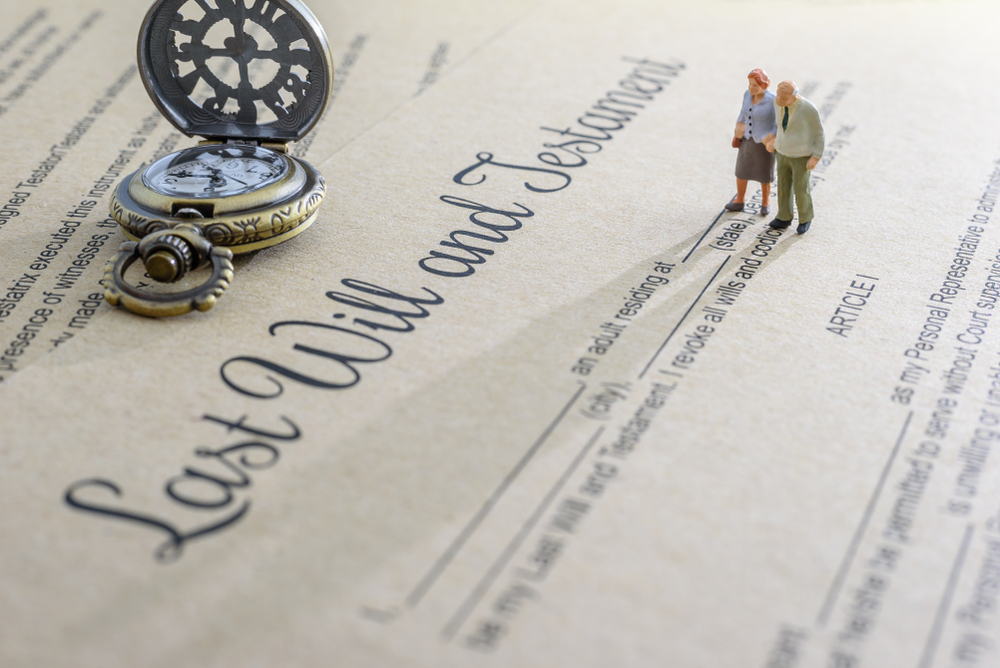News
Contested wills reach all time high in 2019

Last year saw an all-time record number of inheritance disputes taking place at the High Court – and coronavirus could cause the number to rise further.
According to the Ministry of Justice (MOJ) a total of 188 cases were brought by individuals who claimed they were entitled to a share of, or a larger portion of, an estate last year.
This figures is up from 128 in 2018, 145 in 2017 and the previous record 158 in 2016.
Experts say the pandemic means the figure is set to rise as advisers witness will signing through windows and via video calls, with questions around undue influence and capacity.
Last month JMW Solicitors reported a 260% increase in contested probate cases and warned that “lockdown wills” and a squeeze in finances will create vicious battles for meagre sums.
Philip Collins, head of the contested estates team at Winckworth Sherwood, said: “We are not at all surprised by the new data coming out from the Ministry of Justice and expect this number to increase further. Of course, only a fraction of contested estates end up before a judge, with the vast majority being settled before court proceedings are even issued.
“We would, however, warn that claims involving an estate can be uniquely distressing for those involved. To get embroiled in a bitter family dispute can be emotionally draining as well as potentially very expensive. There are several ways for testators and families to try to avoid claims, but if that is not possible many cases can be resolved and cry out for mediation, in order to avoid the cost and stress of court proceedings.”
Delayed weddings due to the pandemic could also cause a spike in contested wills.
A study by London-based wedding planning app, Bridebook, found that 64% of weddings in 2020 will be affected by coronavirus either by postponements, cancellations or travel logistics.
While the lockdown easing means weddings of up to 30 people have been able to take place since 4 July, any further lockdowns, either local or national, would cause more delays and cancellations.
Will dispute experts warn the postponements could cause issues if one of the couple dies, leaving their intended partner with no legal protection because they couldn’t get married.
Ben Lyon, will, trust and estate disputes solicitor at Irwin Mitchell, said: “Thousands of couples across the UK have had to postpone or even cancel their wedding altogether, which is a heart-breaking situation, and are then left wondering when it’s safe to go ahead with a new celebration.
“It’s not just young people getting married who have been affected either – there are second and third marriages taking place with older couples, who have also had to delay their weddings and may find themselves in a position where they’re open to will disputes if one of the partners dies.
“If couples are needing to wait to get married then this means we could see a rise in will disputes in the coming years, especially if people are dying without a will in place.”
There is very little provision in English law for cohabiting couples. Currently if you live with a partner but aren’t married, if one dies then there is no automatic provision for the surviving partner.
This can cause trouble if there are complicated family ties involved, such as children or other family members, leaving the surviving partner with no legal protection if they chose to uphold intestacy laws – and potentially no right to their partner’s estate.
Lyon said: “One way to combat this would be to enter into a cohabitation agreement. These are easy and inexpensive solutions that effectively create a contract between the two parties setting out their agreement as to the division of their combined assets.
“The other alternative would be to make a will or do them both in tandem. This would ensure that if someone dies, the house or family business for example will go where they want them to. A will could also be prepared by cohabitees ‘in contemplation of marriage’, which would mean that they wouldn’t need to update it again once the marriage had taken place.”